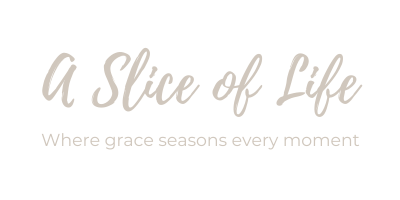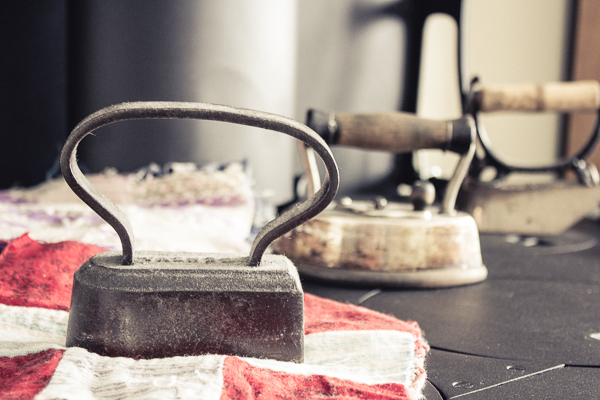This piece was original published by the Forget Me Not Family Society in the Winter 2015 edition of the Adoption Circles newsletter.
My husband gave me an antique stove for Christmas. It now sits in my office and every time I enter the room I‘m reminded of a time when life was perhaps less complicated, but certainly harsher, than the life I live today.
There are two heavy old irons on it—irons I rescued from my Grandma Sellsted‘s attic; irons she once used when she was raising three children by herself on the harsh Saskatchewan prairie during the years of the Great Depression. A stack of roughly sewn quilt blocks also sit on the stove—hand-stitched nine patch squares that I imagine her piecing as she sat in a chair by the drafty front window to get the last rays of winter light. I love that I can display the heavy old irons and quilt blocks with the stove. There is history there. My history.
I share no DNA with Grandma Sellsted but she is my family, my heritage, and a woman whose life inspires me to the extent that I‘ve been dabbling at writing a book about her life. Persnickety, unlovable to me as a child, a woman who chose not to record my birth in her family bible, but my grandma nonetheless. I share an unbreakable connection with her, the choices she made, the tears she shed, the joys she experienced, and the mother she was. Pieces of her were passed on to my mom who, in turn, passed them down to me.
Her daughter, my mom, was the woman who raised me, loved me, and instilled so much of herself within me. She died too young at age fifty-five, yet I can almost hear her whisper in my ear when I‘m basting a turkey, sewing a seam, or laughing with my daughter and granddaughter.
An invisible, yet unbreakable, thread connects us all together. We three are family.
There‘s a trunk tucked away in the back of our storage room that once belonged to a woman named Mary—the woman who gave birth to me. It contains ephemera of a life that is foreign to me—papers, letters, her wedding dress, and some of her handwork. The first time I opened the trunk and saw the pieces of embroidered cloth I closed my eyes and rested my hands on the fabric knowing her hands had touched the same place—trying to reach back in time and connect with the woman who gave me life, gave me away, and died before I could find my way back to her.
I have photographs of Mary‘s mother too, my grandmother, a woman I never met and who I feel little connection to. We share the same DNA but the stories of the lives of these women were not instilled in me like those of Grandma Sellsted and my mom. By the time I learned about my connection to these women it was too late; their stories died with them.
Yet there is an invisible—once very secret and shame-filled—thread connecting us together. We three are also family.
These women who came before me are my family; there is a piece of each one of them in me. The woman I am is, in part, who they were collectively. Through me, they live on, and the thread that comes down through the ages connects us all together—women who were not connected in life but who now are in death.
When I consider the concept of family it is the future that seems clearer to me. My daughter, my son, my granddaughter—these three who carry the same genes as mine—and my husband, step-children, and their children—those who do not share my DNA but who occupy precious places in my heart.
When I am in the company of my children and granddaughter and experience the wonder of being with other human beings who look like me, who share some of the same mannerisms and character traits, yet who are distinct human beings in their own right, I can‘t help but marvel at the genetic connection we share. Perhaps only those who were raised apart from their family of origin can appreciate the sense of the miraculous I experience when I look into the face of these dear ones and catch a glimpse of myself.
We are family. Shared experiences. Shared stories. Shared DNA.
As an adoptee I find the concept of family to be a complicated one. It goes beyond heritage, blood, or genes. Those I call family are a motley crew made up of children, step-children, grandchildren, a spouse and his extended family, and an assortment of half-siblings.
The way I see it, one of the great tragedies of closed adoption is the ruthless snapping of the thread that connects us with our mothers, sisters, grandmothers, aunts, great-grandmothers, and all of those we came from. The stories of those women who lived, gave birth, laughed, cried, and dreamed, are our stories and the severing of connection with our people impacts the generations that will come after us. We are all influenced by our ancestors and we must know the truth in order to be whole.
I feel a sense of urgency at times to speak and write these stories so the connecting thread will be reattached for my children, grandchildren, and their children—so that the severing that was done when I was adopted will be repaired for future generations.
I envision a red thread entwining around Grandma Sellsted and my mom, wrapping around Mary and her mother, connecting me to them and them to one another. The thread reaches into the past and two families with nothing in common, except me, are joined forever. It loops around my children and grandchildren and the legacy that I was denied becomes theirs.
We are all family. It complicated, messy, and tragic. It‘s joyous, grievous, and confusing. We are all different and yet we are all one: one family joined together by adoption.



What a powerful essay you have written. Obviously you are a gifted writer. The story of adoption has always interested me and I have always felt that in the cases of closed adoption there are so many gaps and so many unanswered questions. There is a powerful need for everyone to know their history, if for no other reason than to be able to pass it on to future generations.
There are, indeed, many gaps and opportunities in the traditional closed adoption model, Carolyn. I write about my experience to help educate. Thanks so much for stopping by and commenting.
Beautifully written, Linda. Families are so complicated!
Complicated indeed, Karen!
I enjoyed this so much …it was so heart felt . I have a friend who was adopted , yet she has never ever wanted to know her genetic parents , I have never understood her decision . It is her birthday today she is 54 . She has never been married or had children . I guess the right man never came along …sadly . She has recently had to leave work through acute depression . I sometimes wonder if she had allowed herself a glimpse of her identity things may been different …who knows.
Cherryx
I’ve learned that everyone’s experience is unique and that our responses are also unique. Where I might have felt the need to put the pieces together about my birth family I can completely understand why another might not have that same sense of needing to know. I will say, however, that depression–often a manifestation of deep-seated grief–is not uncommon in adoptees. I wish your friend peace on her journey.
lovely and poignant, Linda
So nice to see you here, Kat. I know you understand, too.
So beautifully written, Linda. My daughter, who is adopted, is expecting her first baby soon. It has given me reason to think about the connections she and I share, and those that are hers alone. Your beautiful writing helps me put some of it in perspective.
Thanks for stopping by, Karen. Your kinds words are much appreciated. And congratulations on your pending grandma-hood!!
Reading these words on my birthday, today, I realize what a gift this is to to me , on this day. Thank you for the birthday present!
Jan, I hope you’ve had a very special and wonderful day!
“We must know the truth in order to be whole.” This resonates with me, Linda, as we welcome my sister’s daughter back into our family. A baby given up for adoption in 1970; a woman who found her way back to us in 2017 due to the magic of DNA. The truth in all its many permutations is only beginning to come out now.